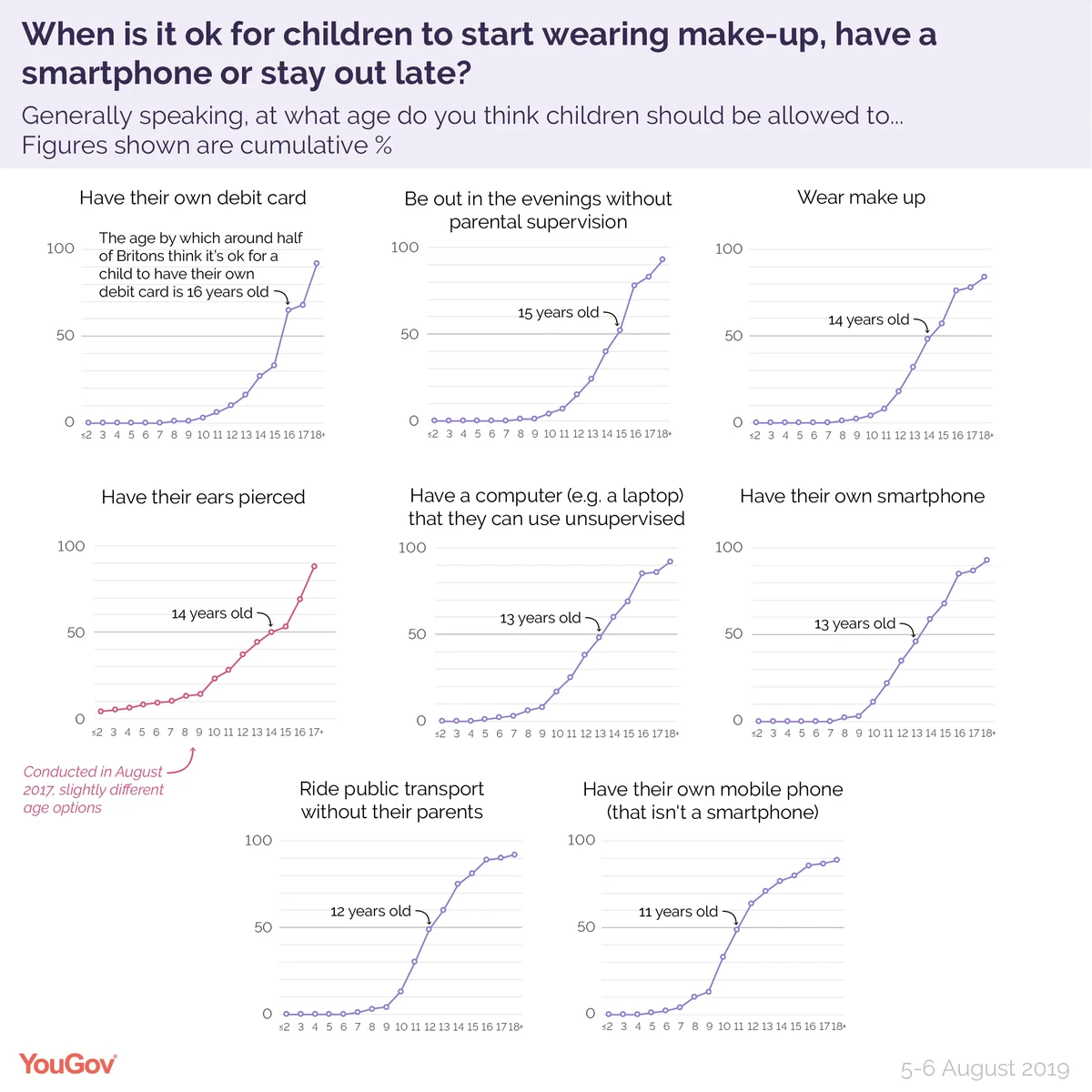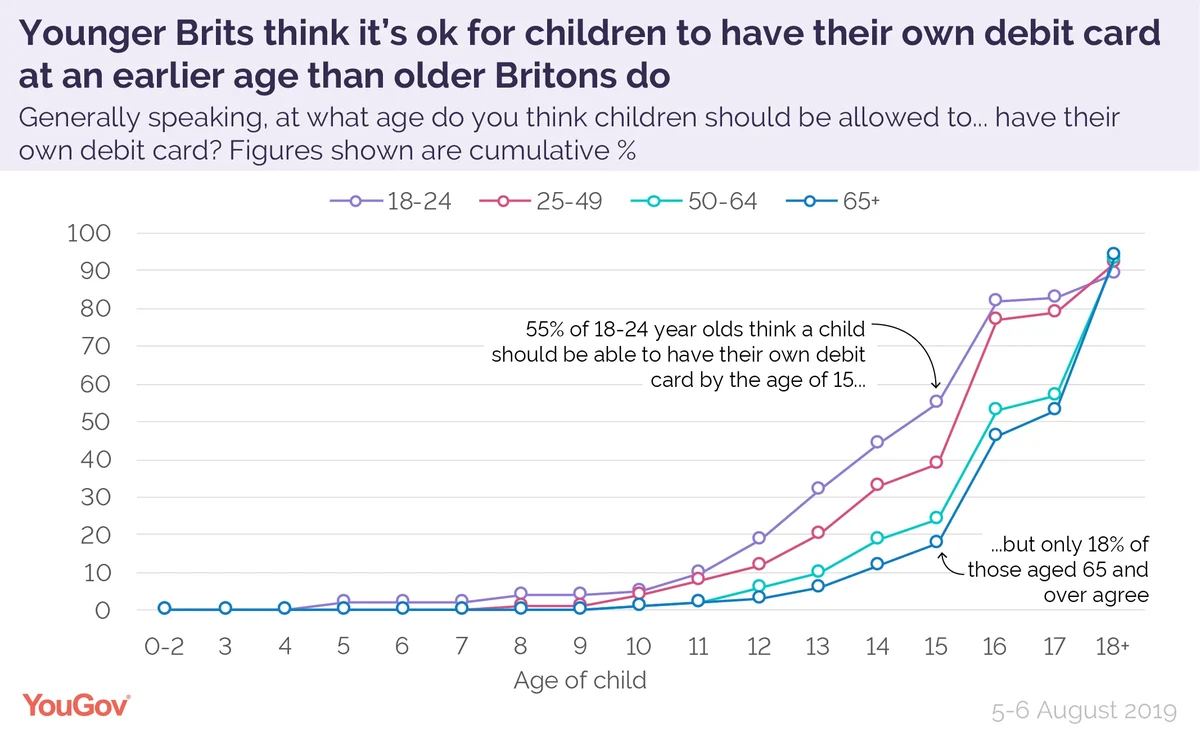YouGov reveals at what point Britons think children should be given various freedoms
TV personality Kerry Katona has come under fire for publishing a photo of her five-year-old daughter Dylan-Jorge wearing lipstick, mascara and eyeliner. Critics said she was ‘forcing children to grow up too soon’.
Now a new YouGov survey reveals at what age people think children should be allowed various milestone freedoms, such as owning a mobile phone or staying out late.
(The results don’t show the number of people who said “don’t know”, which is why the charts don’t reach 100%)
The results show that a statistical 0% of Britons think that a child of Dylan-Jorge’s age (five) should be allowed to wear make-up. In fact, it’s generally frowned upon until a child is 14, by which point half of Britons (48%) think it’s ok.
Most women (58%) think it’s ok by the age of 14, but most men (68%) don’t reach the same point until the child is 16.
In a similar vein, a previous YouGov survey found that it’s not until the age of 13 that half of Britons come to think that a child is old enough to have their ears pierced. Men and women are similarly divided on this subject as well: while 49% of women would let a child have earrings by 12, the majority of men (59%) only accept it once the child reaches 16.
Technology
Many parents fret about the appropriate time to let their children have their own mobile phone, especially given the peer pressure children face at school.
By the age of 11 around half (49%) of Britons think it’s ok for a child to have an old style “brick phone”. But people are more reluctant to let children have smartphones – only 22% of Brits think they should have such access by 11. By the age of 13 approaching half (46%) come to think it’s ok, a figure which tips over to 59% at age 14.
Parity of opinion on the two types of devices is reached at 16, at which point 86% of Brits think it’s ok for children to have old-style mobiles and 85% think it’s ok for them to have smartphones.
Those who are parents to children aged 17 and below are slightly more permissive. Six in ten (61%) are happy with a child having a “brick phone” by age 11 (compared to 47% of everyone else). Likewise, while 52% think it acceptable for a child to have a smartphone by age 12, only 29% of the general population says the same.
Results on children having unsupervised computer use track very strongly with those for smartphones, indicating that Britons tend to see such devices and their use much more as computers than they do as simple phones.
Money
While many object to Britain slowly becoming a cashless society on the basis that it could make life harder for some disadvantaged groups, one group is not often mentioned: children.
Only a third of Britons (33%) think it’s ok for a child to have their own debit card by the age of 15. At 16, however, this figure doubles to 65%.
Parents of children aged 17 and under are more permitting than the general population. Half (50%) of these parents say it’s ok for children to have a debit card by age 15, a figure fully twenty percentage points higher than those without children in this age range.
There are also huge differences of opinion between the generations. While more than half (55%) of 18-24 year olds think children should be allowed to have a debit card by the age of 15, but only 30% of 25 to 49 year olds from the general population say the same, falling to 24% of 50 to 64 year olds and just 18% of those aged 65 and over.
Out and about
Knowing when to let your child start exploring the world alone can also be hard to judge. As it is, half of people (49%) are ok with children riding public transport without their parents by the age of 12. When it comes to allowing kids to stay out after dark, half the public (52%) is ok with them doing so by the age of 15.
Parents of children aged under 18 actually tend to be happier to let them out in the evenings at earlier ages than the rest of the population. By age 15 fully 64% of parents think it’s ok for children to be out in the evenings unsupervised, compared to only half (49%) of everyone else.
Age is a key factor here too, with younger Britons more likely to set a lower age limit than their elders – while half (53%) of 18 to 24 year olds would let children roam free in the evenings only 28% of those aged 65 and older say the same.
Photo: Getty









